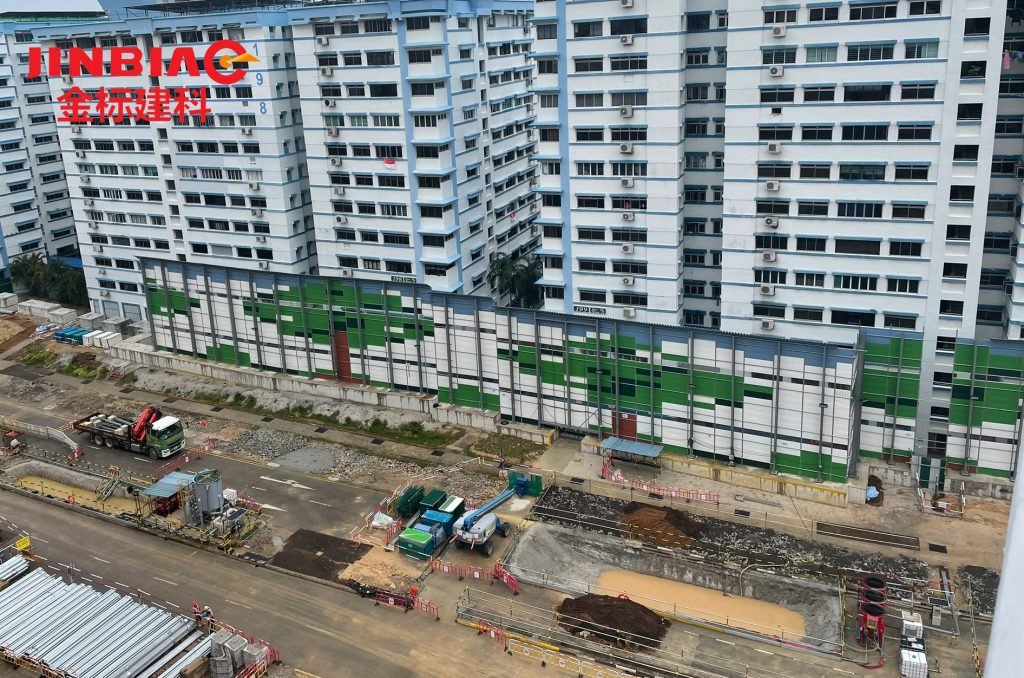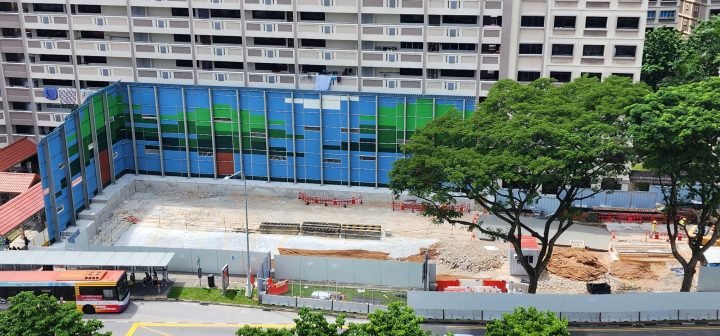
In the hustle and bustle of the construction world, the issue of noise pollution often stands out as a significant challenge, both to the environment and to personnel well-being. It’s a well-known fact that loud, continuous noises can be harmful, leading to stress and even hearing impairments in severe cases.
In the construction sector, noise is unavoidable, yet managing it is entirely within our control. Noise barriers are vital for construction sites — keeping noise levels in check is not just about community relations. It also ensures regulatory compliance and is a key element in Occupational Health and Safety (OH&S) standards.
With development sprawling into urban and suburban areas, the need for noise control strategies that are effective and adaptable to specific project demands has never been greater.
Understanding the Project Needs
The initial and crucial step in choosing a suitable noise barrier for your construction project involves a comprehensive understanding of the detailed sources of project noise. These sources may include the operation of heavy machinery or drilling activities, each with its own unique frequency and amplitude characteristics that necessitate a customised approach.
It is important to recognise and identify these noise sources, along with their specific frequency and amplitude profiles, as this knowledge serves as the foundation for designing and implementing the most effective noise barrier solution.
Types of Noise Barrier Solutions
a. Temporary Noise Barriers
Temporary noise barriers provide immediate, short-term solutions to control noise issues on construction sites. Noise barrier construction solutions are from rugged materials such as reinforced vinyl or composite materials, they are designed to be easily movable and to withstand tough outdoor conditions. Examples of such solutions include barrier walls, curtain systems, and enclosure systems that can be customised to fit any project area.
b. Permanent Noise Barriers
Permanent noise barriers are designed for long-lasting noise control solutions. These are significantly more robust and are constructed from a variety of materials, including concrete, metal, wood, and transparent materials like acrylic. They offer the advantage of blending with the aesthetic of the site while effectively dampening noise pollution.
Customisation Options
Cookie-cutter solutions rarely fit the complex mould of construction projects. Customisable noise barriers can be tailored in terms of dimensions, materials, and even visual treatments. For example, if aesthetics are a concern for a project in a commercial district, the barrier’s appearance can emulate the buildings’ facades.
Alternatively, if the site will be operational after construction, provisions for signage, lighting, or air ventilation could be included in the barrier design.
Cost Considerations
While customisation can lead to higher initial costs, it is crucial to consider the long-term effects on the project’s budget. A barrier that perfectly fits the project may offer better noise reduction, require less maintenance, and have a longer lifespan than a generic solution. Moreover, reduced noise complaints and potential legal ramifications can significantly outweigh initial investment costs.
Regulatory Compliance
Noise barrier construction solutions are sound in principle and essential to meet stringent noise regulations. Customising barriers that align with current noise level restrictions makes it easier to forecast and control noise emissions throughout the project’s timeline, maintaining compliance and harmony within the community. It also ensures that the construction site is a safe and healthy environment for workers.
In addition, customised barriers often provide documentation that helps with regulatory compliance reporting.
Maintenance and Durability
Ensuring that your noise barrier is well-maintained is of utmost importance. Neglecting its upkeep can compromise its effectiveness, resulting in reduced noise control. Regular inspections should be conducted to identify any signs of wear or damage to maintain optimal performance. Thorough cleaning, including the removal of debris and vegetation, is essential to prevent obstructions that can hinder the barrier’s functionality. Additionally, prompt repairs should be carried out to address any issues identified during inspections.
To enhance the longevity of your noise barrier, it is advisable to choose durable, high-quality materials and construction methods. This careful selection can significantly contribute to the barrier’s ability to withstand environmental factors and extend its overall lifespan.
Conclusion
Customised noise barrier solutions are the unsung heroes of construction project management. By selecting and customising noise barriers that address specific project needs, construction managers and engineers can adhere to regulations, protect community well-being, and ensure a less disrupted, more harmonious working environment. The journey to find the perfect noise barrier is a multi-faceted process that warrants a balance between efficacy and practicality.
As the construction industry shifts towards more conscious and sustainable practices, personalised noise barriers can help lead the way in noise management innovation.
Hebei Jinbiao is a leading company in Noise Barrier products and Fencing products in Singapore. We guarantee to provide you with the most high-quality Sound Barrier and Fencing products along with our dedicated assistance. Do not hesitate to contact us. We are looking forward to helping you solve your noise issues, safety issues and protecting you from noise pollution as well as ensuring your safety.

